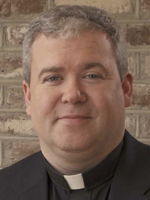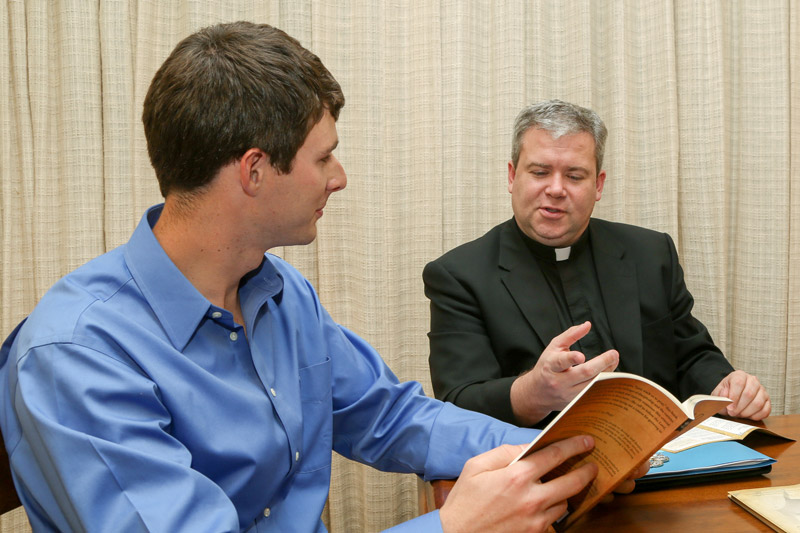
Q: How do I respond to someone who invited me to join a study group on the biblical evidence for “God the Mother”? Doesn’t Jesus refer to God as “Father”? (Columbia, SC)
A: I would strongly recommend that you decline such an invitation since such views are contrary to biblical faith and the constant interpretation of the Bible by the Church through the ages. While Jesus employs similes referring to himself as “mother hen” (Mt 23:37), or metaphors identifying himself as a woman searching for lost coins (Lk 15:8-10), and other general feminine images, he does not identity God in the feminine nor ever address God with a feminine greeting.
As believers, we know that God is not “like” a father, as he might be “like” a mother hen, rather God is Father. The designation is not merely a title but an identification of his very being.
Pope Benedict XVI explained it best when he wrote: “Christianity is not a philosophical speculation … Christianity is not ‘our’ work; it is a Revelation; it is a message that has been consigned to us, and we have no right to reconstruct it as we like or choose. Consequently, we are not authorized to change the Our Father into an Our Mother …”.
Q: Where is the real proof that there is life after death? Not stories by mortal men. Faith does not make it true. One of the great Catholic theologians preached that the world was flat and many believed him! (Richmond, Texas)
A: I’m not sure what you mean by “proof.” If you mean proof in the sense of scientific evidence, then you’re using the wrong criteria to find an answer about eternal life. Certainly, it’s good to use scientific standards for areas relating to the natural sciences, but when we approach questions of our being and existence — such as life after death — then we have to use a different set of criteria, since these are not within the realm of the natural sciences.
With the above clarification, the “proof” we’ve been given in terms of human experience has been observed and discerned by thinkers and scholars since the beginning of time. In the ancient world, this reflection was formalized and recorded in Greek philosophy, Eastern mysticism, and the Judaic Wisdom Literature. In contemporary times, anthropology and psychology have also provided insights. These various sources highlight an awareness of the spiritual powers of the human soul, such as the ability to love, hope, and give thanks, as well as the soul’s immortality. These realities indicate something beyond the material world and point to life after death.
While these thoughts are helpful, the Christian depends on something more powerful. As believers, our “proof” is the Resurrection of Jesus Christ. As Christians, we know and acknowledge that the Lord Jesus was raised from the dead and destroyed the kingdom of death. This is the culmination of all human reflection on eternity and the definitive sign to the human family of our eternal vocation in God.
In terms of dismissing the observations and teachings of theologians because they relied on the natural sciences of their day — such as the theory of a flat Earth — it only proves that we should be cautious in applying the criteria of the natural sciences to areas beyond their competency and vice versa.
Father Jeffrey Kirby is administrator of Our Lady of Grace Church in Lancaster. Because he is moving on to other projects after the summer months, Father Kirby is no longer taking questions for this column.




